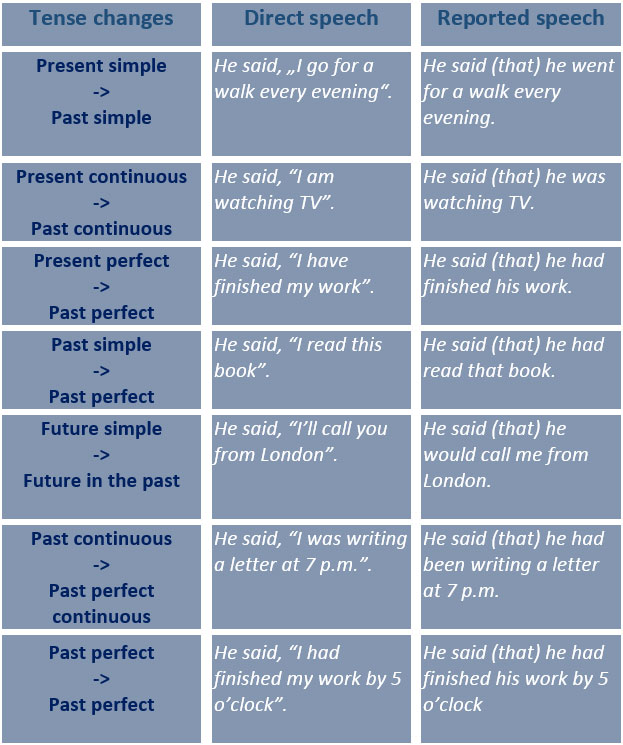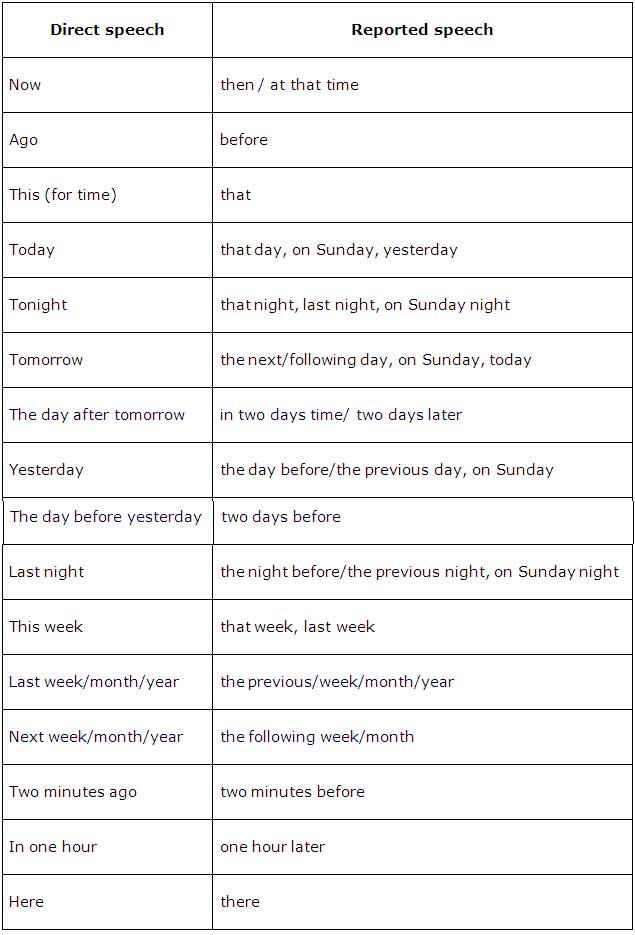Direct speech repeats the exact words the person used, or how we remember their words:
Ex: Barbara said, “I didn’t realise it was midnight.”
In indirect speech, the original speaker’s words are changed.
Ex: Barbara said she hadn’t realised it was midnight.
If you have a sentence in Direct Speech, try to follow our 5 steps to put the sentence into Reported Speech:
- Define the type of the sentence (statement, questions, command)
- What tense is used in the introductory sentence?
- Do you have to change the person (pronoun)?
- Do you have to backshift the tenses?
- Do you have to change expressions of time and place?
Tense changes when using reported speech:

We can use say and tell to report statements in direct speech.
Other reporting verbs:
add, admit, advise, agree, announce, answer, ask, claim, comment, complain, confess, confirm, continue, cry (=shout), demand, enquire, explain, hint, inform, insist, interrupt, maintain, note, observe, offer, order, point out, promise, protest, repeat, reply, shout, state, suggest, threaten, warn, wonder.
Conversion of expressions of time and place:
If there is an expression of time/place in the sentence, it may be changed, depending on the situation.
- Direct Speech → Peter: “I worked in the garden yesterday.”
- Reported Speech → Peter said (that) he had worked in the garden the day before.

No hay comentarios:
Publicar un comentario